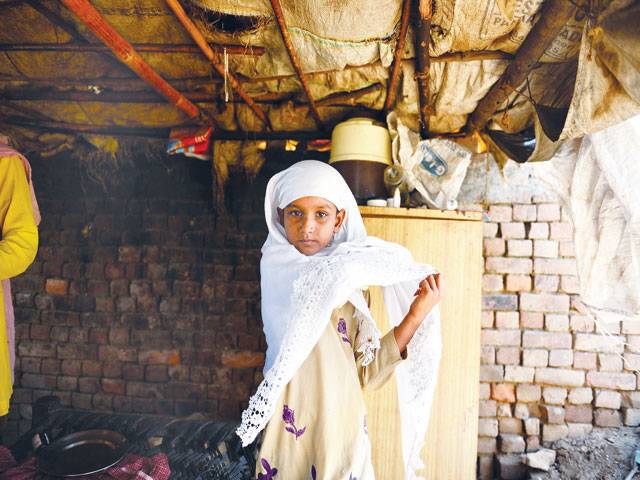Bhuvan BAGGA - An unrepentant Jasbir Singh smirked as he contemplated the changes to his village in the year since hundreds of Muslims fled a terrifying wave of deadly communal violence in northern India.
“All the filth has now gone,” Singh said at a gathering with fellow Hindu elders in the flashpoint Muzaffarnagar district of Uttar Pradesh state.
More than 60 people were killed, hundreds injured and thousands were displaced in and around Muzaffarnagar after a dispute over the treatment of a local Hindu girl spiralled into riots on September 7 last year.
But while few of the victims have been able to return home - many of them forced to eke out a living in squalid displacement camps - sympathy appears in short supply among their former neighbours.
Uttar Pradesh, India’s most populous state, has a long history of violence between majority Hindus and minority Muslims, including riots in 1992 over the razing of a mosque at a disputed religious site in Ayodhya which killed more than 2,000 people.
Last year’s violence was the deadliest in the state since the Ayodhya carnage, erupting just months before May’s general election which was won by the Hindu nationalist Bharatiya Janata Party (BJP).
While new Prime Minister Narendra Modi largely avoided the topic of religion during his campaign, many Muslims remain wary of a man who was chief minister of Gujarat when Hindu mobs went on a murderous rampage in the state in 2002.
Modi is now one of Uttar Pradesh’s members of parliament, along with two BJP lawmakers arrested for their alleged role in the Muzaffarnagar violence. One of them, Sanjeev Balyan, is a junior government minister.
In an Independence Day speech, Modi called for an end to communal violence, which he said was stunting growth. But on the ground in Muzaffarnagar, resentment among Hindus towards Muslims shows little sign of abating, with many accusing the socialist state government of favouring Muslims to bolster their electoral support.
Even the compensation paid to Muslims who lost homes during the two weeks of bloodshed is a bone of contention. “They lived in dirt cheap houses and are now getting so much more as compensation from this outrightly biased administration,” said Vinod Kumar, speaking at his home in Kutba village where at least eight Muslims were killed last September.
Vinod’s younger brother Amit Kumar boasted how he had managed to dodge apparently half-hearted attempts by police to arrest him over his role in the riots. “I go to the fields each time they come looking for me at our home,” the 26-year-old said.
Fleeing in the middle of the night
Muzaffarnagar is four hours’ drive from New Delhi, but its landscape of sugarcane fields and dirt roads feels a world away from the capital.
Many villages still bear the scars of the violence - such as Lisad, where all the houses in a street which used to be home to more than a dozen Muslim families are now abandoned and partially destroyed.
The local mosque has also been abandoned, its doors swinging on hinges. For 35-year-old Sanjida Ali, the memory of the night she had to flee her home in the nearby village of Kakra is as raw as ever.
“We had to flee in the middle of night into the forest next to our village, leaving behind all our belongings which are lost to us forever,” the mother-of-six told AFP.
The family made a run for it after hearing that Hindu neighbours, angered by reports of communal violence in a next-door village, were plotting to take revenge on them.
“I don’t think we will ever go back,” said Ali, who lives in what was meant to be a temporary displacement camp in the Shahpur area of Muzaffarnagar. “But my husband, who is a mason, hasn’t had any regular work since the riots.”
The Alis now live in a one-room makeshift hovel on the side of a road, along with a goat and a hen. Plastic sheeting precariously propped up by bamboo sticks has only limited success in keeping out the monsoon rains, while water is accessed from a nearby hand pump which they share with dozens of other families.
Mehtab, a Muslim cloth-seller who uses only one name, said he was also struggling to make ends meet since fleeing his home. “I miss my home, of course,” he said. “But I feel safer staying in this camp or anywhere where I am surrounded by my own people.”
Modi’s chief lieutenant Amit Shah has been accused by opponents of repeatedly stirring up communal tensions for electoral advantage. But Modi himself has disappointed many in Muzaffarnagar by focusing on general development issues rather than pledging to help Hindus.
“When people voted for Modi, they hoped he would do something specifically for Hindus here,” said a police officer from Kutba who spoke on condition of anonymity.–AFP
Friday, April 19, 2024
Hindu extremists unrepentant a year after India riots

Caption: Hindu extremists unrepentant a year after India riots
8:27 AM | April 19, 2024
8:09 AM | April 19, 2024
Minister reviews naan, roti prices
April 19, 2024
ETPB land worth Rs 40b retrieved so far
April 19, 2024
Lahore revamping plan to complete by June 30
April 19, 2024
CCPO reviews security for by-elections, NZ cricket matches
April 19, 2024
A Tense Neighbourhood
April 19, 2024
Dubai Underwater
April 19, 2024
X Debate Continues
April 19, 2024
Hepatitis Challenge
April 18, 2024
IMF Predictions
April 18, 2024
Kite tragedy
April 19, 2024
Discipline dilemma
April 19, 2024
Urgent plea
April 19, 2024
Justice denied
April 18, 2024
AI dilemmas unveiled
April 18, 2024
ePaper - Nawaiwaqt
Advertisement
Nawaiwaqt Group | Copyright © 2024





